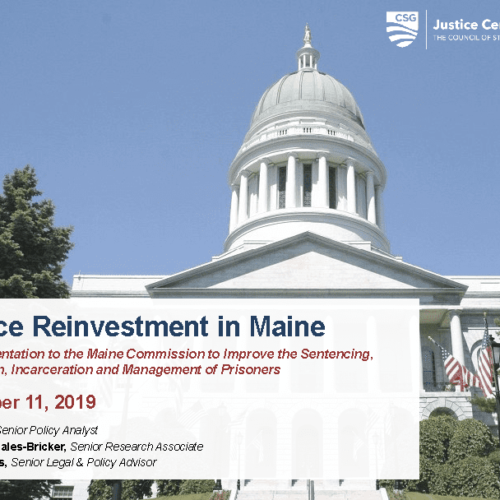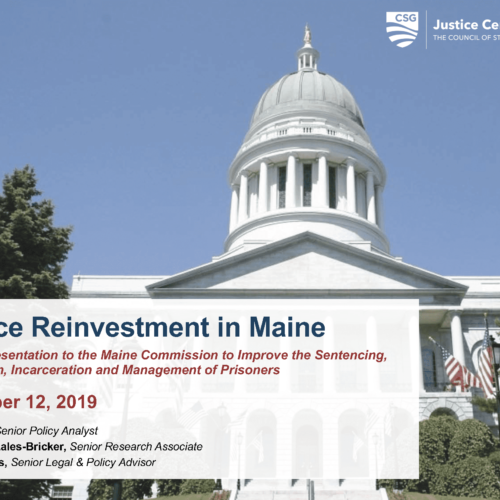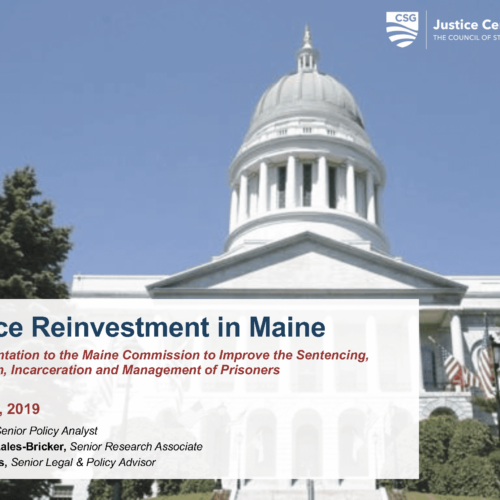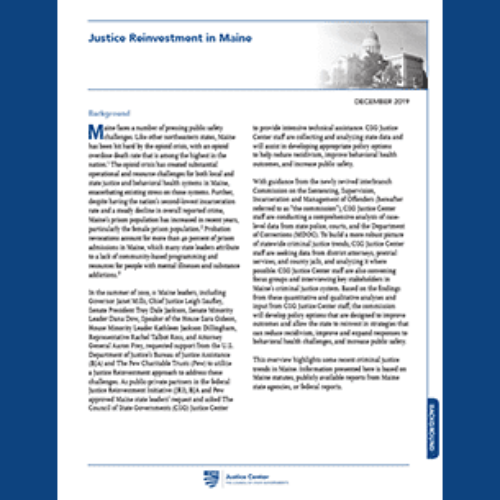Justice Reinvestment in Maine
The Problem
In 2019, Maine faced a number of pressing public safety challenges. Like other northeastern states, Maine was hit hard by the opioid crisis, with an opioid overdose death rate that was among the highest in the nation. The opioid crisis created substantial operational and resource challenges for both local and state justice and behavioral health systems in the state, exacerbating existing stress on those systems.
Further, despite having the nation’s second-lowest incarceration rate and a steady decline in overall reported crime, Maine’s prison population had increased in recent years, particularly for women. Probation revocations accounted for more than 40 percent of prison admissions in Maine, which many state leaders attributed to a lack of community-based programming and resources for people with mental illnesses and substance addictions.
How JRI Helped
In the summer of 2019, Maine leaders requested and received support from the U.S. Department of Justice’s Bureau of Justice Assistance (BJA) and The Pew Charitable Trusts (Pew) to utilize a Justice Reinvestment approach to address these challenges. Staff from the CSG Justice Center provided intensive technical assistance by collecting and analyzing data and helping develop appropriate policy options to contain corrections spending and increase public safety. The Justice Reinvestment effort was guided by the interbranch Commission on the Sentencing, Supervision, Incarceration and Management of Offenders.















